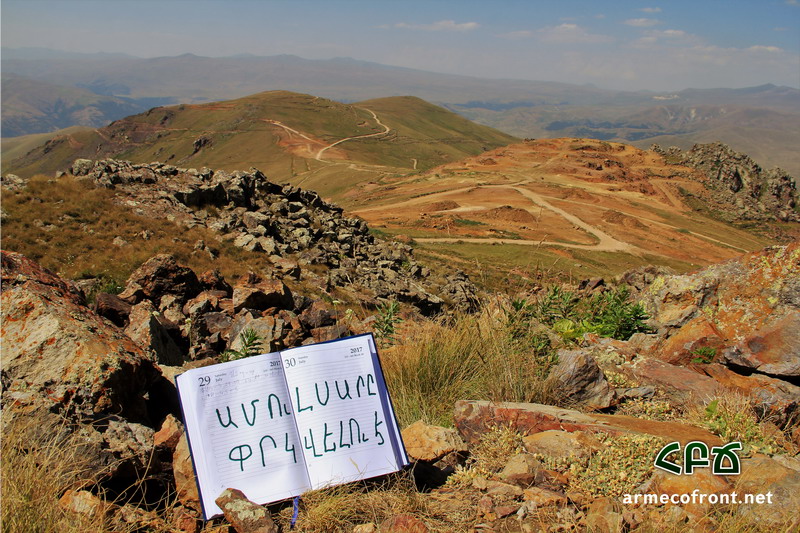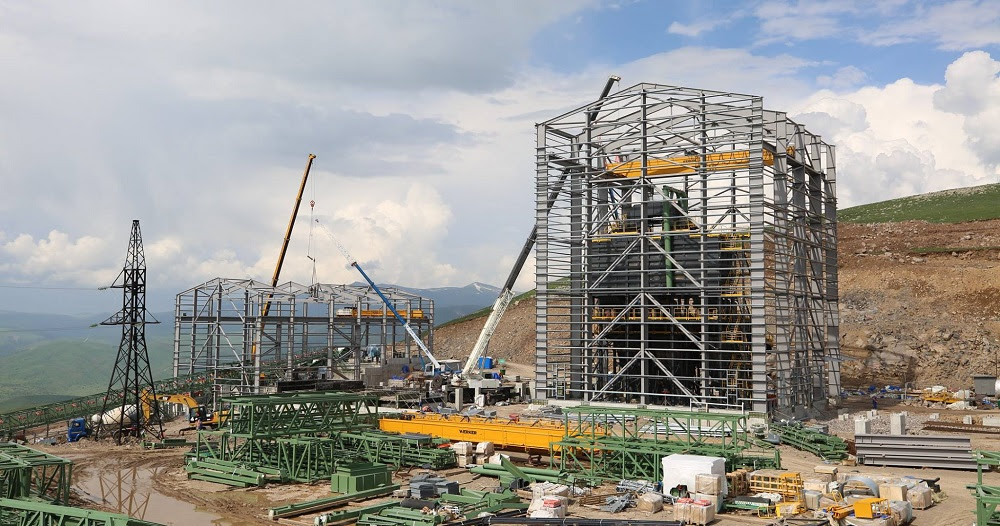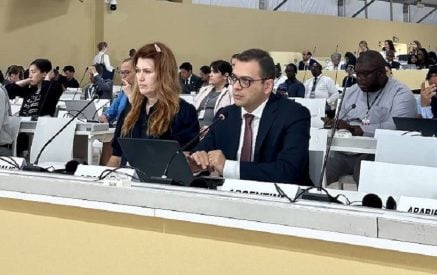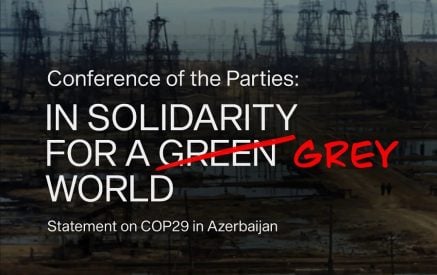By JUDr. Martin Madej, MJur
On March 11th 2019, after the blockade of its mining operations by the local population of Jermuk in July 2018 without the governmental intervention, Lydian International Limited (hereinafter “Lydian International”) announced that its subsidiaries, Lydian U.K. Corporation Limited (“Lydian UK”) and Lydian Canada Ventures Corporation (“Lydian Canada”), submitted a formal notice to the Government of the Republic of Armenia about the existence of dispute. Lydian thus announced its intention to sue Armenia, should it not comply with its alleged obligations under the bilateral investment treaties with the UK and with Canada.
The purpose of this memorandum is to analyse the nature of Lydian UK’s and Lydian Canada’s potential claims.
- Lydian International’s scheme to secure jurisdiction under the investment treaties
Let’s start with some facts. Lydian International was incorporated in Alberta (Canada) in 2006. A year later, the company was transferred to Jersey in the Channel Islands, a tax haven The company, through its subsidiaries, also maintains offices in Yerevan (Armenia) and Greenwood Village, Colorado (USA), the latter presumably to attract American investors. In fact, 56.35% of its shares are currently controlled by 3 investment management companies – RCF Management LLC, Orion Resource Partners, Franklin Advisers – all of them operating in the USA.
Read also
Now, if Lydian International decided to use the international arbitration against the Republic of Armenia, it could not present itself as a company from Jersey (as there is no international treaty) or Yerevan (claimant’s country being the same as the host country). It would have to sue as a US company and the terms of the arbitration would be determined by the Treaty between the United States of America and the Republic of Armenia concerning the encouragement and reciprocal protection of investment (signed 1992, in force 1996). However, as the annex to the Treaty says, Armenia reserved the right to alter its obligation to the US businesses by making an exception for investments in the extraction of natural resources. It follows that from the inception of its operations in Armenia, Lydian International could not rely on the protection of its investments by the Armenian government, other than the protection afforded to local businesses.
In August, 2018 Lydian International established two subsidiaries, one in the UK, one in Canada, both 100% owned by the former. It so happens that the UK and Canada are among the few countries with which Armenia does have a bilateral investment treaty, but without any exception for the mining industry. Given that Lydian International operates in Armenia and Georgia, there is no apparent reason for Lydian International’s decision, other than its interest in securing jurisdiction for the international arbitration. Such conduct is, however, in clear violation of the procedural rules of the international arbitration.
As the Tribunal of the International Centre for the Settlement of Investment Disputes (ICSID) found in Phoenix Action Ltd. v. the Czech Republic (Ic sin Case No. Aiss/06/5, Award, April 15, 2009), ICSID lacks jurisdiction where the claimant “creates a legal fiction in order to gain access to an international arbitration procedure to which it was not entitled.” Like Lydian International, the claimant in this case tried to circumvent the procedural rules by faking its operations, without success.
The decision in Phoenix Award was cited with approval in Mobil Corporation and others v. Bolivarian Republic of Venezuela, in which the Tribunal declined jurisdiction to hear a number of investment-related disputes that pre-dated the corporate restructuring of the claimants, which had been undertaken in order to avail of the protections afforded a BIT concluded between The Netherlands and Venezuela.[1]
An investment treaty tribunal will therefore lack jurisdiction ratione temporis where an investor who is not protected by an investment treaty restructures its investment in order to fall within the scope of protection after the date on which the challenged act of the host State occurred.[2] The case of Lydian International is even clearer, as its subsidiaries did not even attempt to look like they invested in Armenia.
This analysis concludes that Lydian International’s action would fail even on procedural grounds. It will now be explained why it would also fail on substantive grounds.
- Lydian International’s investments are not protected by the investment treaties
As the current expert evidence suggests, the mine in Amulsar would – even with the-state of-the-art preventive and mitigative measures – presents substantial risks on the environment and the health of the local population. This is important, as Armenia is a contracting party to a number of multilateral international treaties related to human rights (e.g. by the International Covenant on Economic, Social and Cultural rights), the protection of nature, biodiversity (Biodiversity Convention, Bern Convention) and so forth.
Now if the Government of Armenia itself decided to put its citizens and natural heritage in danger with its own mining operations, the respective bodies could find its conduct in violation of international law and subject to fines and other forms of legal and political pressure. However, it would ultimately be its sovereign decision to continue with the mining. Lydian International does not have similar privilege. According to the Art. 1(f) of the bilateral investment treaty between Canada and Armenia, , an “investment” means any kind of asset owned or controlled either directly, or indirectly through an investor of a third State […] in accordance with the latter’s laws. It follows that Lydian International’s investments must comply with the Armenian legal system. Pursuant to the Art. 5 of the Republic of Armenia’s Constitution, the international treaties are a constituent part of the legal system of the Republic of Armenia. In other words, had the disruption of Lydian International’s activities occurred after the actual mining had begun, Lydian International (or UK or Canada) would have no claim against Armenia precisely because Lydian International (or UK or Canada) had engaged in activities which were damaging to the human rights of Armenians and to other values protected by Armenia’s international obligations. Finally, there is no logical or legal reason to postulate that the Republic of Armenia or its citizens have to wait for the Lydian International to cause the said damage with its mining activities, only to recall Armenia’s obligation to intercede.
In conclusion, it was demonstrated that Lydian UK’s and Lydian Canada’s claims under the investment treaties between Armenia and the UK or Armenia and Canada would not under present circumstances succeed, because
- ICSID will not have jurisdiction where the investor clearly abuses the international arbitration to protect its investment by artificially creating subsidiaries in third countries, and
- the Republic of Armenia would in any case have no obligation towards Lydian International, Lydian Canada or Lydian UK to protect their investments, so long as the investments violate Armenian national law, including the international treaties which are part thereof.
Signed
JUDr. Martin Madej, MJur
[1] For more examples of the unlawful schemes to secure jurisdiction, see John P Gaffney, ‘Abuse of Process in Investment Treaty Arbitration’ (2010) 11 J WORLD INVESTMENT & TRADE 515.
[2] See eg Libananco Holdings Company Limited v. Republic of Turkey, ICSID Case No ARB/06/8, Award (2 September 2011) [Michael Hwang (President), Franklin Berman and Henri Alvarez] para 121–28; Vito G Gallo v. The Government of Canada, NAFTA/UNCITRAL, Award (15 September 2011) [Juan Ferna ́ndez-Armesto (President), J. Christopher Thomas and Jean-Gabriel Castel] para 328; Socie ́te ́ Ge ́ne ́rale in Respect of DR Energy Holdings Limited and Empresa Distribuidora de Electricidad del Este, SA v The Dominican Republic, UNCITRAL, LCIA Case No UN 7927, Award on Preliminary Objections to Jurisdiction (19 September 2008) [Francisco Orrego Vicun ̃a (President), R. Doak Bishop and Bernardo Cremades] para 106–7.





























































